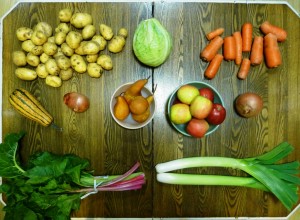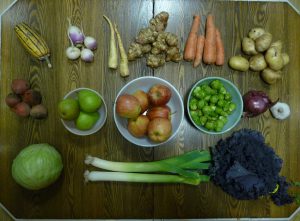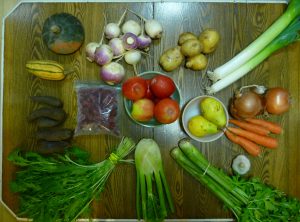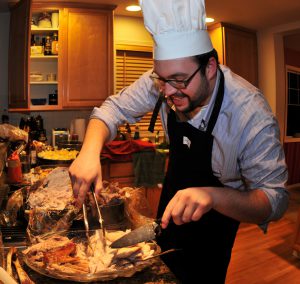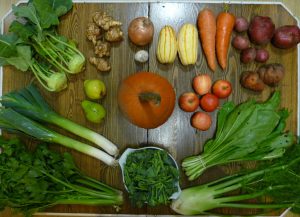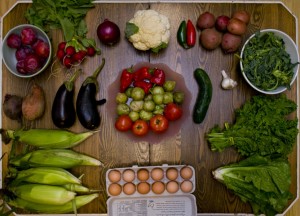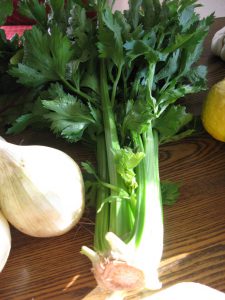 People who always have something to complain about annoy the crap out of me. The reason they are continually annoyed at life is not because they have a particularly annoying life, but because they are encountering their lives through a faulty paradigm. Sometimes I wish I could transfer telepathic understanding to them: “The root of the problem is not all of your problems, but you.”
People who always have something to complain about annoy the crap out of me. The reason they are continually annoyed at life is not because they have a particularly annoying life, but because they are encountering their lives through a faulty paradigm. Sometimes I wish I could transfer telepathic understanding to them: “The root of the problem is not all of your problems, but you.”
I’m not talking about people who have bad days. Everyone has bad days. I’m talking about people who always have bad days. I think part of the faulty paradigm is an expectation for a “perfect” reality that no real person ever experiences on a consistent basis. This “perfect” reality is by nature intangible, unobtainable, unchangeable. In lay man’s terms, these are the “grass is always greener on the other side” folks.
If you expect reality to conform to an idea that it can never aspire to, you will always see life fall short and be depressed about the life that is dealt you. If you expect life to be what it is, however, you can come to appreciate it for what it truly is: an ever-changing, ever maturing, vibrant, vivacious and cosmic thing that we are blessed enough to be part of and privy to. Here are a few truths about life:
(1) Things are “born” in some fashion. “Planted” suffices for, well, the plants.
(2) Things mature and change, according to the seasons. These seasons could refer to Autumn and Spring, adolescence and middle age, or business and serenity.
(3) Things come and go. Nothing is ever present all the time.
(4) Things die. Sometimes things are simply not around anymore.
(5) Things come back. Plants, and people, have offspring. There is also hope for a new creation where we will be resurrected.
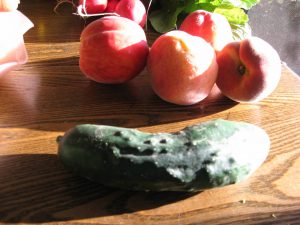 So, what does this have to do with food?
So, what does this have to do with food?
People who complain about their food annoy the crap out of me. Food is good! It is delicious! Is it perfect? No. Does it have to look perfect? No. Sometimes the food that is the best for you looks weird or is prepared in an odd fashion. If you are eating real food but still finding things to complain about, the problem is not the food, but your expectations of the food.
Food is dynamic and alive. It grows, matures and dies. It comes in and out of season. If you don’t understand these fundamental things about the nature of food, you don’t really understand how food is supposed to work. “Real Food” acts like food in all these ways. In order for food to go against this vibrant, dynamic nature, it has to be altered, and much is lost in the process.
Case in point: the twinkie. Where does it come from? Don’t want to know. There never is a “twinkie season.” It never matures, dies or goes stale, like real food would. It also lacks the taste, nutrition and earthiness of real food. What does the twinkie have going for it? Great advertising which promotes a feeling about twinkies that leads the eater to expect a sort of fulfillment beyond the natural purveyances of food. But I’m left wondering: where’s the cream filling?
Think about food commercials. They aren’t really selling food most of the time. They’re selling an experience, a brand or an identity.
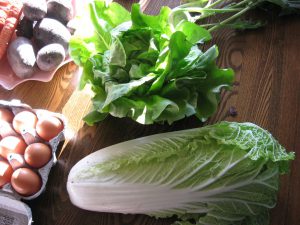 Real food is silent. Real food is just food. But, somehow, there is something entirely more spiritual about real food. I think this is it: if you are able to see food for what it is supposed to be—raw, earthy, fragile, bold—then you can let it remain its tangible, silent self, and move on to understand things about your own nature and how you fit in with the world. If, however, you are chasing something through your food consumption that you can never obtain, you are stuck in a hamster wheel, and you will never learn or gain anything but frustration and discontent.
Real food is silent. Real food is just food. But, somehow, there is something entirely more spiritual about real food. I think this is it: if you are able to see food for what it is supposed to be—raw, earthy, fragile, bold—then you can let it remain its tangible, silent self, and move on to understand things about your own nature and how you fit in with the world. If, however, you are chasing something through your food consumption that you can never obtain, you are stuck in a hamster wheel, and you will never learn or gain anything but frustration and discontent.
Here are some principles towards a better food paradigm:
(1) If it can’t go bad, it was never good in the first place.
(2) If it is claiming to do something for you other than feed you, get a reality check.
(3) Eat what’s in season. It will taste better.
(4) There is more variety in food tastes than “sweet,” “salty,” and “greasy.”
(5) If you don’t want to eat it slowly and savor it, you don’t want to eat it. Period.
(6) Expect the unexpected. And expect to change.
(7) There is always something to be thankful for. Say grace. Eat well.
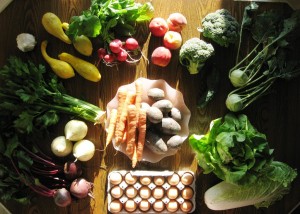 WEEK 6
WEEK 6
(Clockwise, from bottom left)
3 Beets
3 Onions
Season’s 1st Celery!
Garlic
Summer Squash
Radishes
Season’s 1st Peaches!
Broccoli
Season’s 1st Cucumber (It’s really hard to see in the shadow)
Kohlrabi
Lettuce
Napa Cabbage
(Also)
Carrots & Purple Potatoes in the bowl
Eggs (again, the farm has new hens, and they are laying smaller eggs this week, so we received 18 eggs instead of the normal dozen)
By ekwetzel
2010-08-13
 Elune and I are discussing artwork and the creative process. She asks me: “Have you ever used art to paint your way out of your hardest times in life or your inner struggles?”
Elune and I are discussing artwork and the creative process. She asks me: “Have you ever used art to paint your way out of your hardest times in life or your inner struggles?”
 I need to tell you about the time I tried to kill myself.
I need to tell you about the time I tried to kill myself.



